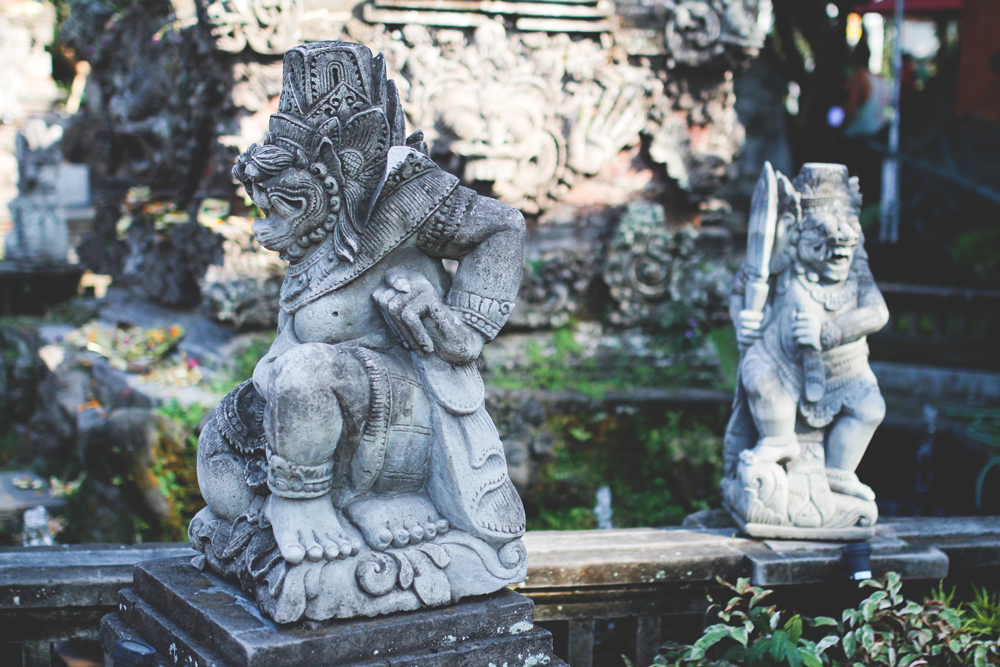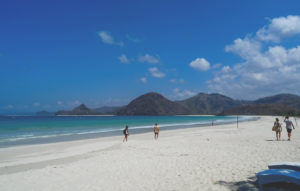
Selamat Datang! Welcome to Indonesia. The country boasts more than 17,000 islands along the equator, making it the largest island nation in the world. The islands are diverse in their shape, flora, and fauna. The inhabitants and their traditions, customs, and traditions also differ from region to region. The fascinating world of foreign cultures, the rites, ceremonies, and unique ways of life are an absolute highlight for every globetrotter in Indonesia. Nature also has a lot to offer!
Breathtaking volcanic landscapes, tropical island paradises, picturesque rice terraces, dream beaches, and a diverse flora and fauna await you in the land of gods and temples. Whether a trip to Bali, a round trip by train through Java, a trip to Nusa Lemongan, Nusa Penida, Lombok, Flores or Sumatra – Indonesia has many faces and facets.
Our Indonesia travel reports & Tips

Currency Indonesia – Withdraw Money, Pay and Credit Card
➳ READ MORE Co-Editor Alessia

Banda Neira – The little paradise of the Indonesian Moluccas
➳ READ MORE Travel reporter

Nusa Penida – Sights, Beaches and Travel Tips
➳ READ MORE Travel Reporter

Travel report | Lombok Sights, Tips and Excursions
➳ READ MORE Travel Reporter

Indonesia Visa – All information on entry and visa application
➳ READ MORE Co-Editor Alessia

Best time to travel to Bali – All information about the rainy season & Climate
➳ READ MORE Co-Editor Alessia
Show more articles
Here you can find our Indonesia travel tips
Getting there
Lufthansa, Swiss, Austrian, Cathay Pacific, Malaysian Airlines, Singapore Airlines and Thai Airways fly several times a week from Frankfurt to Indonesia. On the outward journey there is usually a stopover in Bangkok, Hong Kong, Kuala Lumpur or Singapore. Lufthansa also flies from Frankfurt to Jakarta. We usually fly from Kuala Lumpur with Air Aisa to Bali, Sumatra or Java. The largest airports in Indonesia are in Bali and Jakarta. You can also fly to the Indonesian islands inexpensively from other Asian cities.
Entry
You do not need a visa to enter Indonesia (Germany, Switzerland, Austria). You may stay in the country for up to 30 days for tourism purposes (only with proof of a return ticket). If you plan to stay longer, it is recommended that you apply for a visa in advance from the relevant authority (Federal Foreign Office). If you take a paid 30-day visa at the airport (USD 30), you can extend it for another 30 days on site. If you choose the free Indonesia visa, you must leave the country after 30 days.
Transportation
Transportation in Indonesia is generally more complicated and not as easy as in Thailand and Malaysia. In Bali, a scooter or Blue Bird taxis are recommended. The Uber app is also widely used. The best road network can be found on Java. Bali and Sumatra follow. The road conditions are usually poor. However, the flight network is quite well developed, allowing you to reach many other islands and countries from Jakarta or Denpasar. A bus ride from Jakarta to Bali takes just under two days, especially since the buses are often overcrowded.
Costs
In general, Indonesia is a fairly inexpensive country to travel to. Locally, you pay with the Indonesian rupiah; the current exchange rate is around 16,000 IDR for 1€. Especially in Bali, you’ll find many Western shopping malls with Western prices. Cheap markets, like in Thailand, are rare. However, fruit and local street food, in particular, are very affordable. In the warungs, you can get hot meals for just 1-2€. We only withdraw money locally using credit cards. The best credit cards compared*.
Accommodation
In Indonesia, you can find everything: hotels, hostels, villas, or private Airbnb accommodations. A simple bed in a hostel starts at €10 a night, while very good hotel rooms in Indonesia start at €20. We usually book our accommodations through Booking.com* or Airbnb*. We’ve had only good experiences with both platforms. We often book or reserve accommodations spontaneously on site. Private villas in the rice fields are popular in Bali, for example. You can find numerous such accommodations on Airbnb, often very inexpensively (with a pool, modern amenities, etc.).
Travel Time
The optimal travel time for Indonesia is between May and October. This is the dry season. However, the climate varies from island to island. On Java, you can expect dry weather from June to the end of September. Sumatra is a particularly pleasant month to travel in September. Bali is particularly popular and recommended from April to the end of September. Heavy rainfall usually occurs between November and the end of March. Some parts of Indonesia are among the stormiest regions in the world.
Vaccinations
Your health is paramount – no matter where you are. You should therefore inform yourself as much as possible before your trip so that you don’t experience any unpleasant surprises in the land of your dreams. A consultation with a tropical medicine specialist is certainly helpful. Be sure to check your “standard vaccinations,” such as tetanus, polio, or measles. Hepatitis A & B, typhoid, rabies, and Japanese encephalitis are also recommended for Malaysia. Certain vaccinations require multiple doses, which require a certain period of time.
Insurance
International travel insurance is essential. Anything can happen at any time, and in countries outside the EU, it can quickly become expensive. To avoid the financial risk, you should get international health insurance. There are numerous providers, which usually cover a period of one year and a travel period of 6-8 weeks per trip. The benefits are important, so you should compare and check them carefully. International health insurance is available from as little as €8 per year. Read all the information about travel insurance here.
Safety
Indonesia is generally a safe country to travel to. But as with any other country in the world, you should travel with your eyes open and use common sense. It’s best not to wear expensive jewelry and leave valuables in the hotel. You should also handle your credit card carefully. You should only take licensed taxis and avoid accepting drinks from strangers in bars. Burglaries, credit card fraud, and violent attacks are a common occurrence in Bali. You can find more information about safety here.
The links marked with “*” are affiliate links. If you book something through one of these links, we receive a small commission. This allows us to continue funding this free platform. This does not incur any additional costs for you.